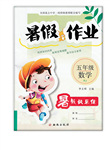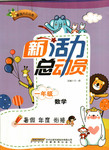题目内容
【题目】Recently, a scientist did some experiments. He left a group of 4-year-olds in a room with a bell and a candy. If they rang the bell, he would come back and they could eat the candy. If, however, they didn't ring the bell and waited for him to come back on his own, they could then have two candies.
In videos of the experiment, he can see the children kicking, hiding their eyes—trying to exercise self-control so they can wait and get two candies. The results are different. Some broke down and rang the bell within a minute. Others lasted 15 minutes.
The children who waited longer went on to get higher SAT scores. They got into better colleges and had better adult success. The children who rang the bell quickest were more likely to have received worse teacher and parental evaluations (评价) 10 years later and were more likely to have drug problems at age 32.
The experiments are worth noting because people spend a lot of time thinking about how to improve education, how to become rich. But when the result is not good, they will come back to ask " how do we get people to get the sort of self-control that leads to success? " This is to enter the world of human nature.
So these experiments along with everyday experience, tell us that self-control is most important. Young people who can sit through sometimes boring classes to get a degree can work hard in order to learn a language well. They can avoid drugs and alcohol. For people without self-control skills, however, school is a series of failed ordeals (煎熬). No wonder they drop out and their later life is a group of foolish ideas, such as drug use, stealing and so on.
【1】The scientist did some experiments to __________.
A. test children's self-control and later success
B. test children's intelligence of ringing the bell
C. find good ways of training children to learn
D. prove that children's education is important
【2】We can learn from the experiment that __________.
A. all children tried to ring the bell for more candies
B. some children didn't get any candy in the end
C. the children have different self-control
D. the last one to ring the bell is the most successful
【3】How long did the scientist's experiments last according to the text?
A. Just 15 minutes. B. Within 10 years.
C. Less than 14 years. D. More than 28 years.
【4】What will those without self-control do at school according to the text?
A. Improving their education.
B. Suffering a lot from boring lessons.
C. Working hard to catch up with others.
D. Becoming very rich and successful.
【5】What is the best title for this passage?
A. Ways of self-control training
B. Experiments on children's ringing the bell
C. Higher score, better achievements
D. Self-control is the key to success
【答案】
【1】A
【2】C
【3】D
【4】B
【5】D
【解析】
【1】A 推理判断题。由第三段 The children who waited longer went on to get higher SAT scores. They got into better colleges and had better adult success.可推知。
【2】C 推理判断题。由第二段"The results are different. Some broke down and rang the bell within a minute. Others lasted 15 minutes.可推知。
【3】D 细节理解题。从第三段 The children who rang the bell quickest were more likely to have received worse teacher and parental evaluations (评价)10 years later and were more likely to have drug problems at age 32.可知选 D。
【4】B 推理判断题。由最后一段 For people without self-control skills, however, school is a series of failed ordeals (煎熬).可推知。
【5】D 主旨大意题。文章自始至终贯穿一个思想:自控是成功的关键。

 暑假作业暑假快乐练西安出版社系列答案
暑假作业暑假快乐练西安出版社系列答案 新活力总动员暑系列答案
新活力总动员暑系列答案 龙人图书快乐假期暑假作业郑州大学出版社系列答案
龙人图书快乐假期暑假作业郑州大学出版社系列答案